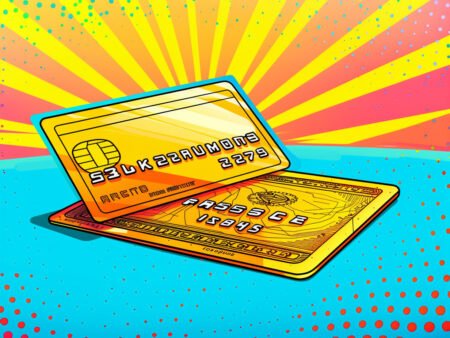When I first got into cryptocurrency, I was all about excitement—watching prices soar and dreaming of my financial future. Security? It wasn’t even on my radar. Like many beginners, I thought, “It’s all safe on the exchange, right?” That naive assumption quickly changed after a massive hack in 2017 that wiped millions from an exchange I was using. My funds were safe, but it was a close call that woke me up to the importance of cryptocurrency security.
Cryptocurrency is like owning a digital vault, and there’s no help desk if something goes wrong. You are your own bank. This guide will walk you through everything you need to know to protect your digital assets in 2024 and beyond.
Understanding Cryptocurrency Security: The Basics
Think of cryptocurrency like a treasure chest. If you’re not careful, anyone can take what’s inside. But here’s the twist—this treasure isn’t hidden deep in a cave. It’s out in the open on the internet, and everyone knows it’s valuable.
To secure that treasure chest, you need locks. In the crypto world, these “locks” are your wallets, passwords, and private keys. Your private key is the most important of all—it’s the key to your digital vault and the foundation of cryptocurrency security.
What is Blockchain and Why Should You Care for Cryptocurrency Security?
At the core of every cryptocurrency is blockchain, a fancy word for a digital ledger where all transactions are recorded. Once a transaction is logged, it can’t be changed—making it secure. However, that doesn’t mean your assets are safe by default. How you interact with the blockchain can make all the difference in your overall cryptocurrency security.
Hot Wallets vs. Cold Wallets: My Personal Experience with Cryptocurrency Security
When I started out, I kept all my funds in a hot wallet—a wallet connected to the internet because it was easy. It felt secure enough, but I was wrong. After a breach in the exchange I was using, I realized I needed something more secure for my long-term holdings—a cold wallet. That was a turning point in understanding how wallets are the backbone of cryptocurrency security.
Hot Wallets: Convenience at a Cost to Cryptocurrency Security
A hot wallet is like keeping money in your regular wallet—it’s there when you need it, but it’s also easier for someone to steal. Hot wallets are always connected to the internet, making them convenient for quick transactions but vulnerable to hacks. While they offer ease of access, they often come at the expense of proper cryptocurrency security.
Types of Hot Wallets:
- Exchange Wallets: Provided by the exchange, but they’re the most susceptible to hacks.
- Mobile Wallets: Handy apps that let you manage crypto on your phone.
- Desktop Wallets: Software on your computer that’s more secure than mobile but still connected to the internet.
Cold Wallets: The Fort Knox for Cryptocurrency Security
After my scare, I invested in a cold wallet. Cold wallets are like locking your treasure chest in a bank vault. They’re offline, so hackers can’t reach them unless they physically steal your device. Popular cold wallets include Ledger Nano X and Trezor, which are essential tools for long-term cryptocurrency security.

Two-Factor Authentication (2FA): Enhancing Cryptocurrency Security
One evening, I received an email that looked like it was from my crypto exchange. It claimed my account had been compromised and urged me to click a link and log in. My gut told me something was off, so I checked the URL closely—it was fake! I had narrowly avoided a phishing scam.
That scare pushed me to set up Two-Factor Authentication (2FA) everywhere. 2FA is like adding another lock to your treasure chest. Even if someone has your password, they can’t get in without your phone-generated code. This simple yet effective measure is critical for improving your cryptocurrency security.
What is 2FA and How Does It Boost Cryptocurrency Security?
2FA requires two things: something you know (your password) and something you have (a code from your phone). It’s an easy way to make sure that even if your password is stolen, your account stays safe. Adding this extra layer is one of the simplest ways to fortify your cryptocurrency security.
Types of 2FA:
- SMS-based 2FA: Sends a code to your phone, but be careful—hackers can swap your SIM.
- Authenticator Apps: Like Google Authenticator, which generates a code that changes every 30 seconds.
- Hardware Keys: Physical keys, like a YubiKey, that you plug into your computer for extra security.
Private Keys: The Most Important Element in Cryptocurrency Security
Here’s a simple rule: never share your private keys with anyone. A private key is like the secret code to your vault, and if someone else gets hold of it, they can take everything. It’s that serious and essential to cryptocurrency security.
One story I’ll never forget involved a guy who accidentally posted his private key on Twitter, thinking it was just his wallet address. Within minutes, his funds were gone. That’s how fast things can go wrong.
How I Backup My Keys to Improve Cryptocurrency Security
After hearing horror stories, I set up a routine for backing up my keys. I store my private key and recovery phrases offline—on paper and locked in a fireproof safe. I even keep a second copy at a different location in case of disaster. Backing up your keys is a critical part of maintaining strong cryptocurrency security.
Avoiding Scams: My Encounter with a Phishing Attack and Protecting My Cryptocurrency Security
The first phishing scam I encountered was terrifying. I got an email that looked like it was from my wallet provider, asking for my private key to “verify” my account. It seemed legit until I double-checked the sender’s address—it wasn’t from the official company. That experience taught me to never click on links in emails, especially ones asking for private information, and to always verify any unexpected communication related to cryptocurrency security.
Types of Common Crypto Scams Threatening Cryptocurrency Security
- Phishing Scams: Fake emails or websites designed to steal your private keys or login information.
- Fake ICOs (Initial Coin Offerings): Scammers create a fake cryptocurrency project to steal your money.
- Impersonation Scams: Fraudsters pretend to be well-known figures or companies to trick you into sending them crypto.
To read more about the common cryptocurrency scams and how to avoid them, refer to this resource on crypto scams.

The Importance of Regular Security Audits for Cryptocurrency Security
Once a year, I sit down and go over my entire cryptocurrency security setup. I check all my wallets, back up my recovery phrases, update passwords, and make sure 2FA is enabled on every account. This simple routine has saved me a ton of stress, and it gives me peace of mind knowing my digital assets are protected.
One time, during my annual audit, I realized I’d been using the same password for two accounts—a huge no-no in crypto. I changed it immediately and was grateful I caught it before any damage was done.
Staying Informed: The Key to Ongoing Cryptocurrency Security
The world of cryptocurrency is always evolving, and so are the threats. I make it a point to stay informed about the latest security practices and potential vulnerabilities. Following reputable crypto news sources and joining online communities has been invaluable in keeping my knowledge up-to-date.
Conclusion: My Cryptocurrency Security Mantra
After years in the crypto space, I’ve developed a simple mantra: “Stay paranoid, stay safe.” It might sound extreme, but in the world of digital assets, a healthy dose of caution goes a long way. By implementing strong passwords, using 2FA, keeping your private keys secure, and staying informed, you can significantly reduce your risk of falling victim to crypto theft or scams.
Remember, in the cryptocurrency world, you are your own bank. With that power comes the responsibility to protect your assets. It might seem daunting at first, but with the right knowledge and tools, you can navigate the crypto landscape safely and confidently.
Stay vigilant, keep learning, and happy hodling!










